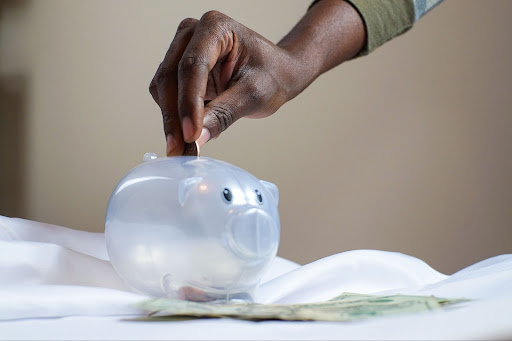A common misconception about savings is that you need to make more money to save, but there are plenty of ways to adjust your spending to start your nest egg. Recent studies show that only 4 in 10 U.S adults (44 percent) could cover the cost of a $1,000 emergency with savings. Consulting a financial advisor at AFBN could help you realize your saving potential and adjust your spending for your benefit.
Why Should You Save Money?
Unfortunately, we cannot predict the future, and sometimes disaster hits. A savings account is a great place to start creating a nest egg for unforeseen expenses. Having money set aside specifically for emergencies is critical to your financial well-being. You don’t want to be caught in a situation where you can’t fix the vehicle you rely on to get to work every day. Saving can be difficult, but you and your family will be grateful you did if you find yourself in a tough situation.
How Do You Start Saving?
When learning how to save, finding your purpose for saving is essential. If you have not found a motivation behind it, it might be hard to stick to your budget or cause you to give up altogether. There are a few steps you can take to help you stay on track and to continue to build your savings account.
- Create a budget: Budgeting is the first step to saving money. Take the time to write down your income and expenses for each month. Determine where there are areas to cut back. If you need to save money quickly, target nonessential expenses such as shopping, dining, memberships and subscriptions, and entertainment. These expenses can be easily sacrificed with adjustments to your lifestyle.
- Set goals for yourself: Establish your motivation for saving. Whether it’s for your emergency fund or your next vacation, getting yourself excited about saving is important. Be sure to set realistic goals with yourself. You don’t want to stretch yourself too thin, making your goal unattainable.
- Record your expenses: Saving becomes much easier when you track your expenditures. Note everything that you spend money on in an app or a spreadsheet. Compare your expenses to your income and determine if you are living within your means or not. Consider a credit card to track your spending, but be sure to pay off the balance at the end of each month. Credit cards can be risky, but if you use them to your advantage, you will find yourself in a better position.
- Change your lifestyle habits: If you eat out often or spend money on unnecessary things or habits, work to find a better option. Instead of going out on the weekend, consider hiking or finding an inexpensive hobby to pass the time. You are in control of your time and money.
- Switch to a better savings account: Check to see if your current account accrues interest. If it’s not, consider switching to a high-yield savings account. These accounts are meant to reward you for putting money in them. As your balance grows, so does your return interest!
The Bottom Line
A significant amount of people in the U.S. are not financially prepared for an emergency. You don’t have to be one of them. Learning how to build your savings account is key to your financial success. Now that you know where to start, you can be better prepared for anything that comes your way. If you still feel unsure about your financial situation, contact the Armed Forces Benefits Network office nearest you to start the conversation. You can take advantage of our services to better understand your finances and plan for a better future.


Leave A Comment